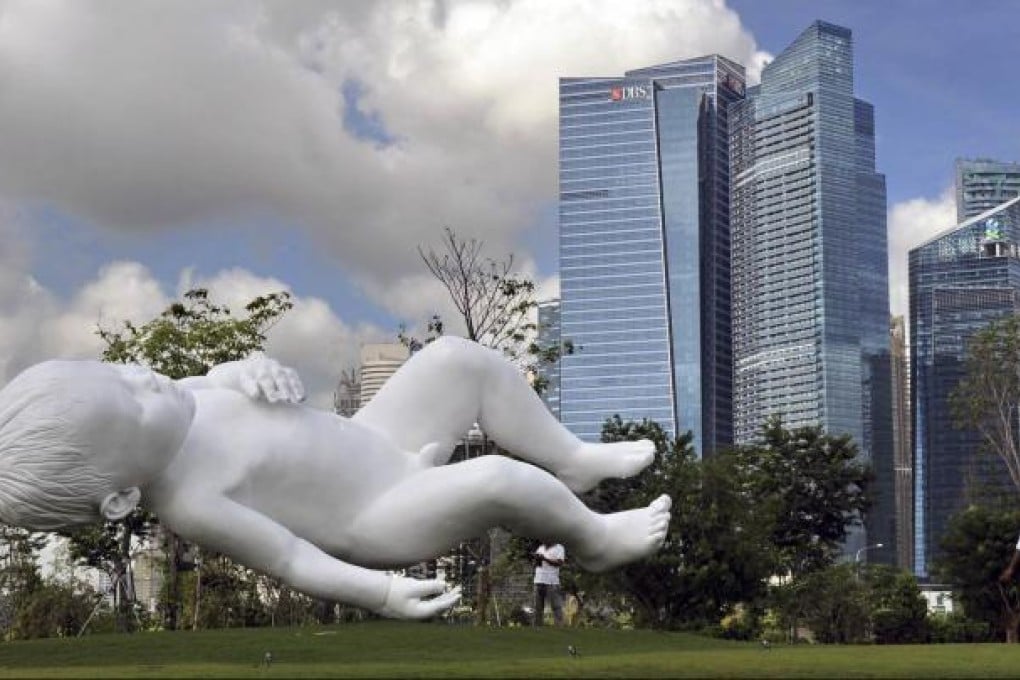
Singapore Prime Minister Lee Hsien Loong is cranking up a national debate on babies this month, with proposals to Parliament that would attempt to stem the country's slumping birth rate. Penelope Sim isn't listening.
"My mother-in-law hates me and she says I'm selfish, but I don't really care," says Sim, a human resources consultant who's been married for six years. "Everything's crazy expensive and life's already stressful enough here without children. If there's no one to carry on the family name, then so be it."
Sim, 33, embodies Lee's challenge to persuade Singaporeans to wed younger. While the birth rate was about 1.3 children per woman in 2012 - barely enough to replace one parent - a backlash against soaring immigration forced the government to curb the influx of foreigners, leading to labour shortages and slower economic growth.
Measures since 1987 to reverse declining fertility, including handouts of as much as S$18,000 (HK$113,600) and extended maternity leave, haven't worked. The nation's birthrate in 2010 and 2011 were the lowest in 47 years of independence. About 36,000 babies were born to residents in 2011, compared to nearly 50,000 in 1990.
The failure to encourage more births means the country will face a shrinking pool of workers and consumers - a deterrent to investment. It will also increase the burden on younger employees to pay for an ageing population. Lee says higher taxes will be needed in the next two decades as the government boosts social spending to support the elderly.
Measures released on January 21 on a government website called "Hey Baby", include boosting Singapore's annual budget on marriage and parenthood to S$2 billion from S$1.6 billion, including spending on matchmaking, housing grants, childcare and fertility treatments and cash gifts for babies. In 2001, the budget was S$500 million.
The prime minister, who has four children, is encouraging couples to start a family earlier by giving priority public housing to those with children below 16 years of age. With some of the most expensive real estate in Asia, government-subsidised homes are the only affordable option for most young couples, and waiting lists for new apartments can extend years. The government will make a S$3,000 contribution to childhood medical expenses and last week announced measures to make childcare more affordable.